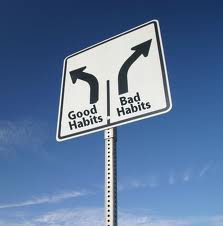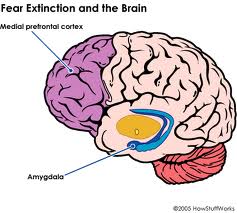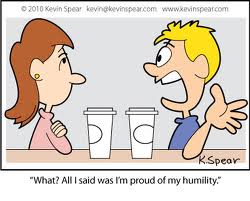 Let me start by reviewing a couple seminal ideas about how we bring about lasting change in our lives. They are simple ideas that are foreign to our natural inclinations. First of all, we are only responsible to change ourselves, not other people. Let me tell you, after 25 years of trying to change my kids and my wife, I’m finally starting to get it through my thick skull that I can’t change anyone but myself.
Let me start by reviewing a couple seminal ideas about how we bring about lasting change in our lives. They are simple ideas that are foreign to our natural inclinations. First of all, we are only responsible to change ourselves, not other people. Let me tell you, after 25 years of trying to change my kids and my wife, I’m finally starting to get it through my thick skull that I can’t change anyone but myself.
Second of all, true change starts from the inside out. To change, we must be motivated to change or have a revelation of our need to change. This connection to our heart is what we typically call vision or passion. Then we need the information of how to change which requires a shift in our thinking or in our head.
Finally, we need to develop new habits, practices, disciplines, virtues, or behaviors, which I call the work of our hands. This cycle of change starts from the heart, then moves to the head, and then translates to our hands. This inside out way of changing is what we need to pass on to those we parent, mentor, pastor, and lead.
The changing of habits or the developing of new behaviors is where most of us give up when it comes to change. We get inspired to change and we get the information on how to change, and even start out with good intentions to change our habits, and then lose steam. Why?
One of the belief systems entrenched in some of us from religious backgrounds is the idea that we are powerless to change ourselves, and that only God can change us. Sounds so true, right? Anything that smacks of us partnering with God in the change process sounds too much like a ‘works doctrine’ that undermines the concept of grace, so we avoid doing our part. Grace has two sides of the coin in its definition. First, the doctrine that restored relationship with God, often called salvation, is a free gift and cannot be earned by our effort. Second, grace is defined as God’s power and resources to be who God has called us to be, and to do what He has called us to do.
The consequence of twisting this doctrine of grace is that we wait around for God to zap us with His power, so that ‘presto’, all our bad behaviors cease. Through this download we expect to become instantly transformed into super nice, perfect people who act like Jesus all the time. We sit around as ‘spiritual couch potatoes’ putting all the blame on God for not changing us. We rationalize our lack of character by claiming that God’s grace means that we can do what we like and get away with it. This is what Deitrich Bonhoeffer referred to as ‘cheap grace’ in his book The Cost of Discipleship. The truth of the matter is that we cannot change our hearts, only God can do that. Yes, we need God’s help to act more like Jesus from the inside out. Yet, as the Catholic tradition so wonderfully teaches us, the developing of virtues requires intentional c0-operation and practice on our behalf. Change of habits doesn’t just happen! We must activate God’s power through some training and practice. (Read Titus 2:11-12)
The opposite extreme in religious circles is working hard to change our external behaviors, so that we look good on the outside, yet our hearts remain unchanged, full of pride, bitterness, and greed. We think we can earn God’s love or a free pass into heaven by all our good works. This is what Jesus called religion. (Read Matt. 15:8-9; Matt. 23: 25-28) Religion is doing all the right things from the wrong heart. We have our religious act down pat, saying all the right words and keeping all the rules, but lack the joy, life, and freedom that flows from a heart that has been transformed by God.
So what is our part in the change journey?
I want to share with you some natural, yet supernatural ideas from the fields of leadership, the brain, and change, that I have found helpful in this journey of developing healthy habits. What is being explored is the connection between the limbic system which governs our emotional responses, and the neocortex part of our brain that governs our rational responses. Most of us initially respond to situations emotionally, not rationally. Emotions are what make us human. How we govern our emotions is the key. This is called emotional intelligence, and is the key to habit formation.
There is a small part of our brains called the amygdala, which is our emotional command center that reacts to emergency situations with the fight, flight or flee responses. A person who responds to a ‘not life threatening’ situation with anxiety and anger has developed deep grooves in the brain from the amygdala to the right side of the prefrontal neocortex part of the brain. The amygdala flight or fight response is hijacking a healthy response to the situation. This is why a person who has suffered from brain damage to the prefrontal cortex part of the brain will struggle with outbursts of anger, mood swings, or depression, triggered by seemingly small things.
Those who have developed deep grooves over time between the amygdala and the left side of the prefrontal area of the brain are able to override the negative emotional responses triggered by the amygdala. This allows a person to remain calm and positive even in a tense or pressure packed situation. The good news is that if we have developed negative habits, whereby we respond to situations with anxiety, anger, or panic, it is possible over time and with practice to rewire our circuitry in our brain so that we respond in a more positive way.
Let me give you an illustration from my life. There is many a day when it comes time for me to go do my workout, that the amygdala part of my brain says to me, “Flee! I don’t feel like working out today.” or “Working out is so painful, give yourself a break.” Yet after years of working out, I have developed a deeper groove between my amygdala and the left prefrontal side of my brain, which overrides the emotional messages from the amygdala by reminding me how wonderful and energized I feel after a workout. Thus I have been able to develop a healthy habit of working out. Learning to govern our emotions, which in the Bible is called self-control, is one of the keys to developing healthy habits.
An example of where I still need to keep developing new grooves in my brain is my epidermal or emotional responses of impatience when an reckless driver is tailgating me. Another growth area is my proclivity to launch into a lecture with a frustrated edge when my kids are spending too much time playing video games instead of getting outside and being active. “It’s not what we say, but how we say it that matters!”
“Self-awareness that leads to self-mastery is the first step to changing oneself.”
Questions, Recommended Reading, and Excercises:
- What virtues do you admire in others?
- What are some healthy habits that you want to develop in your life?
- What are some unhealthy behaviors you want to stop? A good book to read on this is What Got You Here Won’t Get You There, by Marshall Goldsmith.
- Ask those who love you most and know you the best what would be one thing you need to change to become a better parent, spouse, leader, pastor, or friend.
- Start with forming one new habit, like exercising 2 to 3 times a week, giving your kids a hug once a day, or a date night once a week with your spouse.
- Set tangible, measurable, and attainable goals.
- Tell a friend, a coach and your family what new habit you want to start, and give them permission to give you feedback and follow up with them.
- Reward yourself for any steps forward.
- Keep practicing even when you blow it.
- Pick up and read Primal Leadership: Realizing the Power of Emotional Intelligence by Daniel Goleman and/or Virtues Re-born by N.T. Wright.



